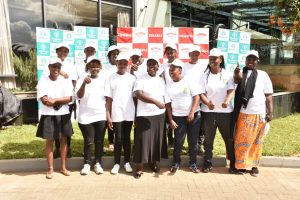Women on Wheels Program Launches in Nairobi
A new initiative named ‘Women on Wheels (WoW)’ has been launched in Nairobi, aiming to train and employ at least 100 women annually in truck driving.
Program Overview
This initiative forms part of Bamburi Cement’s Sustainability Programs, focusing on Diversity, Equity and Inclusion (DEI), Health, Safety, and Environment. The goal is to motivate more women to pursue careers in truck driving.
Collaborative Efforts
Bamburi Cement collaborates with Isuzu East Africa, the Kenya Transporters Association, and several other key industry stakeholders to dismantle the traditional male-centric culture, enhance working conditions, and promote safe work environments.
Commitment to Job Placement
At the launch, Jane Wangari, Bamburi Cement’s Country Head of Health, Safety and Environment, emphasized that the WoW Program includes not only training but also job placement opportunities for participants with Bamburi and its logistics partners.
Driving Change for Gender Equality
Seddiq Hassani, Managing Director of Bamburi Cement, stated the program resonates with the company’s DEI objectives, reflecting their commitment to gender equality, which includes signing the Women’s Empowerment Principles in December 2020. He acknowledged ongoing challenges but affirmed their determination to support women across their operations.
Challenges in the Trucking Sector
Rita Kavashe, Managing Director of Isuzu East Africa, noted that the program is designed to support experienced female drivers, those licensed but lacking experience, and newcomers without a license. Mercy Ireri, COO of the Kenya Transporters Association, pointed out that the trucking industry is often seen as unwelcoming to women due to various challenges.
Training Focus and Statistics
The WoW Program will provide comprehensive training in technical truck operations, defensive driving, and skills development, including road safety and soft skills. Currently, women constitute only 10% of the public transport workforce in Kenya, with 85% functioning as matatu operators in Nairobi, according to a 2020 Flone Initiative survey.


